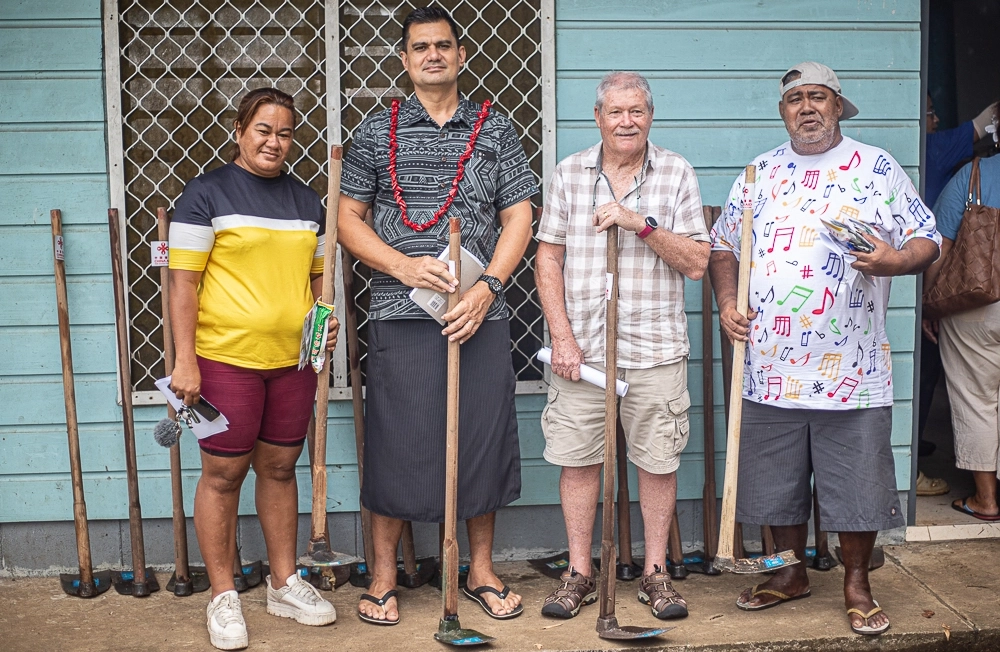According to recent reports by Savali Newspaper, the Samoa China Agriculture and Technical Project (SCATAP) has been progressively enhancing Samoa’s agricultural sector through its successive phases. Currently in Phase V, led by Professor Jim Liu, the project continues to build upon the technological and infrastructural advancements introduced in previous phases. Backed by the Samoa government, SCATAP has consistently played a pivotal role in modernising agricultural practices across Upolu and Savaii. This latest phase maintains the project’s commitment to sustainable practices and technology-driven solutions, further advancing the ongoing transformation of Samoan agriculture.
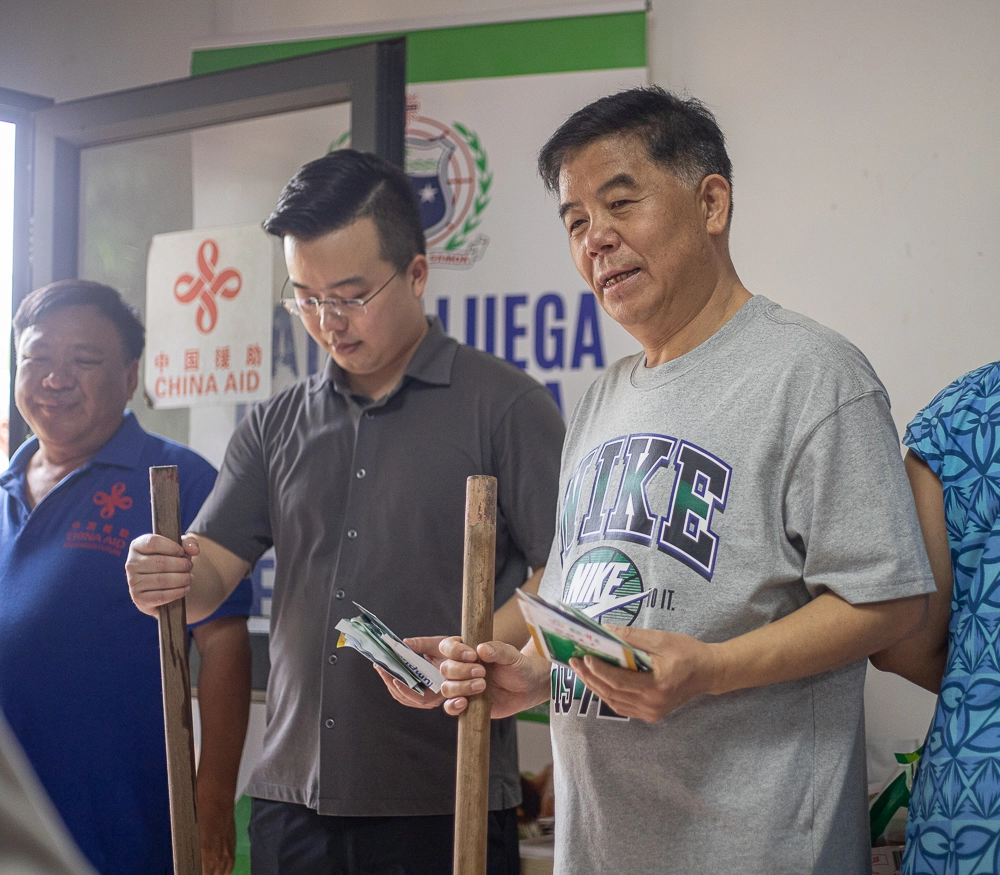
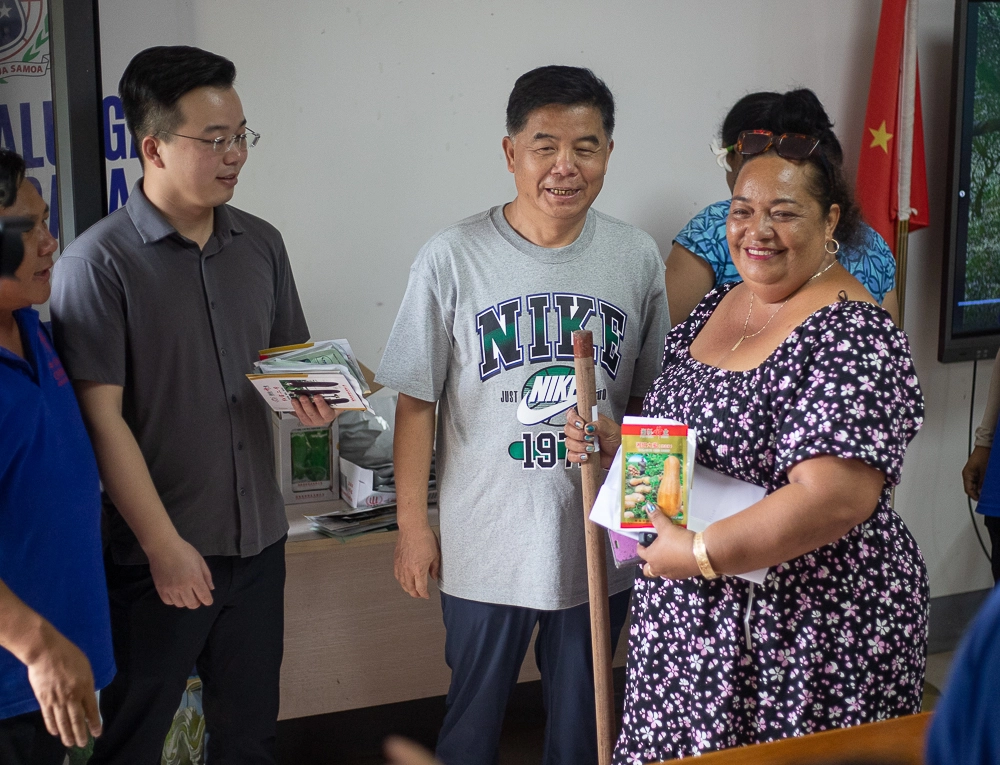
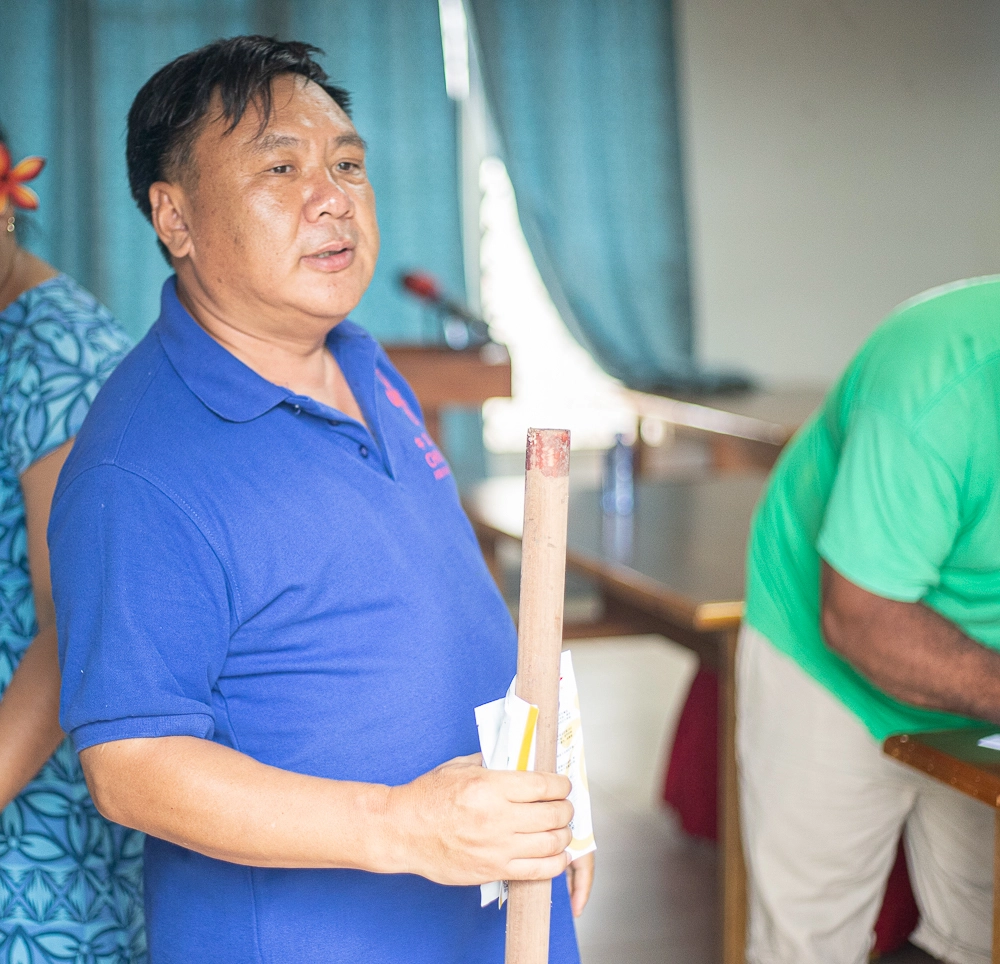
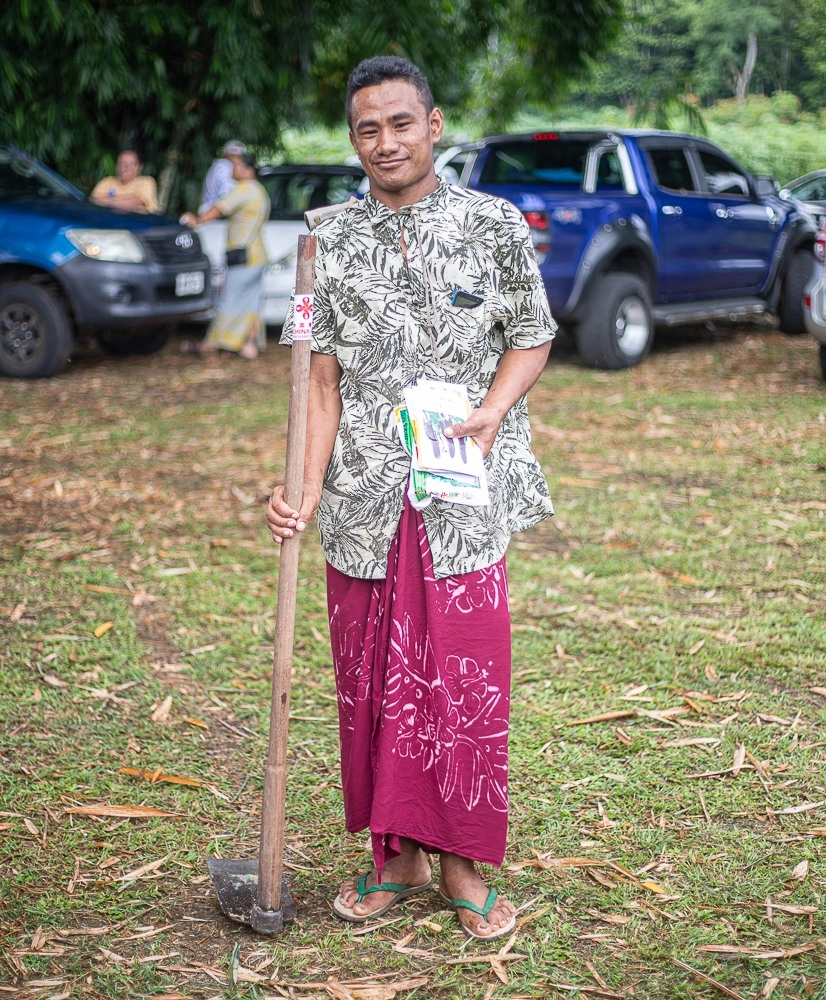
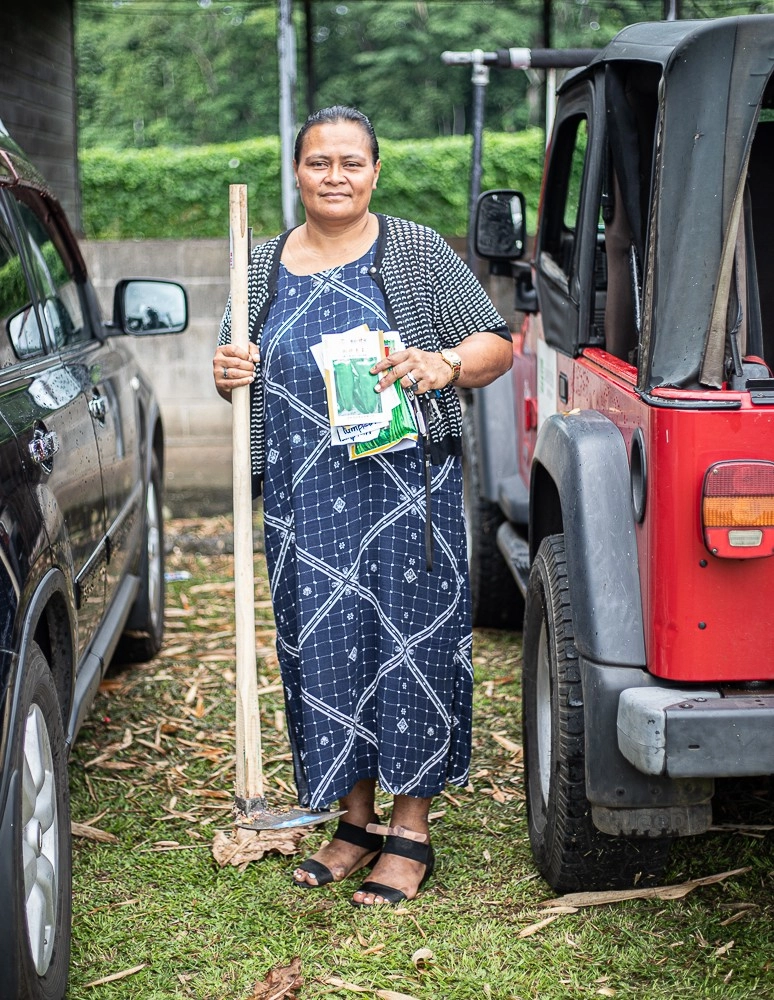
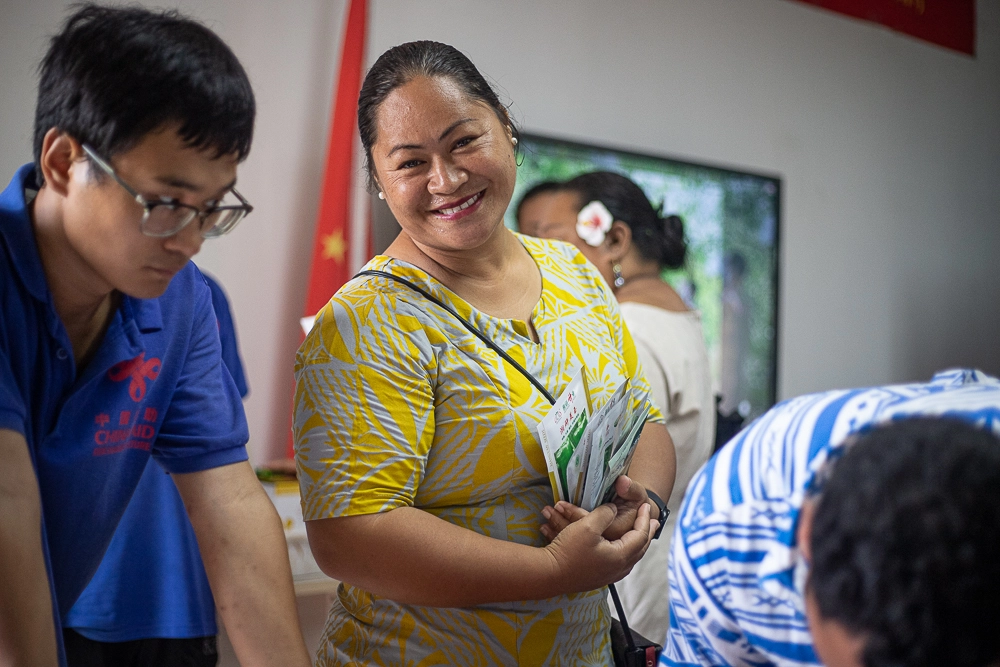
Photos by Leota Marc Membrere of Savali Newspaper
Key Developments in SCATAP Phase V
- Infrastructure Enhancement: The initiative has successfully constructed essential facilities for 38 model farmers. This includes six state-of-the-art broiler houses, expansive fencing for poultry farming, and 60 tunnel houses for vegetable cultivation. Additionally, a two-acre citrus demonstration plantation has been established, showcasing the potential for diverse agricultural practices in Samoa.
- Pioneering in Poultry Farming: A landmark achievement of Phase V is the introduction and successful implementation of free-range broiler value chain technology, marking a first in Samoa’s history. This innovation has enhanced poultry farming efficiency, with the project distributing over 30,000 chicks and specialised formula feed. This initiative has led to a significant income increase for broiler model farmers by $500,000 tala. The establishment of a unique feed mill and chicken breeder farm by SCATAP underscores its commitment to modernising animal husbandry in Samoa.
- Vegetable Farming Revolution: The introduction of tropical island tunnel house technology by SCATAP has revolutionised vegetable production in Samoa. Widely adopted, this technology has significantly increased both production and farmers’ income. In 2023, the income of 30 model vegetable farmers reached a remarkable 1,174,695 tala, a growth of 145% compared to 2020. The project also produced and distributed over 340 kg of open-pollinated seeds, including long bean, pumpkin, sweet corn, and okra, fostering a sustainable and self-reliant farming community.
- Citrus Farming Enhancement: Efforts in citrus farming have been impactful, with the transplantation of 2240 citrus seedlings for 22 model farmers and the introduction of high-yield cultivation technologies. This has revitalised citrus farming, leading to increased production and income. The introduction of new fruit varieties, such as Meyer lemons and Tahitian Limes, has started to bear fruit.
- Comprehensive Training and Support: SCATAP’s agricultural training, both locally and in China, has been highly praised. Professor Liu and his team have provided one-to-one technical services to model farmers over 200 times, resolving more than 300 farming-related issues. This approach has been crucial in adapting farming practices to local needs and conditions.
- SCATAP Demonstration Farm: This farm has served as a beacon of agricultural innovation, attracting over 600 visitors, both local and international, showcasing the project’s success and potential.
Looking ahead, SCATAP Phase VI is set to continue this trajectory of growth and innovation. The upcoming phase plans to establish model farmers in various fields such as vegetables, fruit, broiler chicken, pig raising, and mushroom production, and provide extensive agricultural training for over 2,020 individuals.
The success of SCATAP Phase V under Professor Jim Liu’s leadership is a shining example of how targeted interventions, technological advancements, and educational initiatives can profoundly transform an entire sector, bringing prosperity and sustainability to the forefront of Samoan agriculture.



